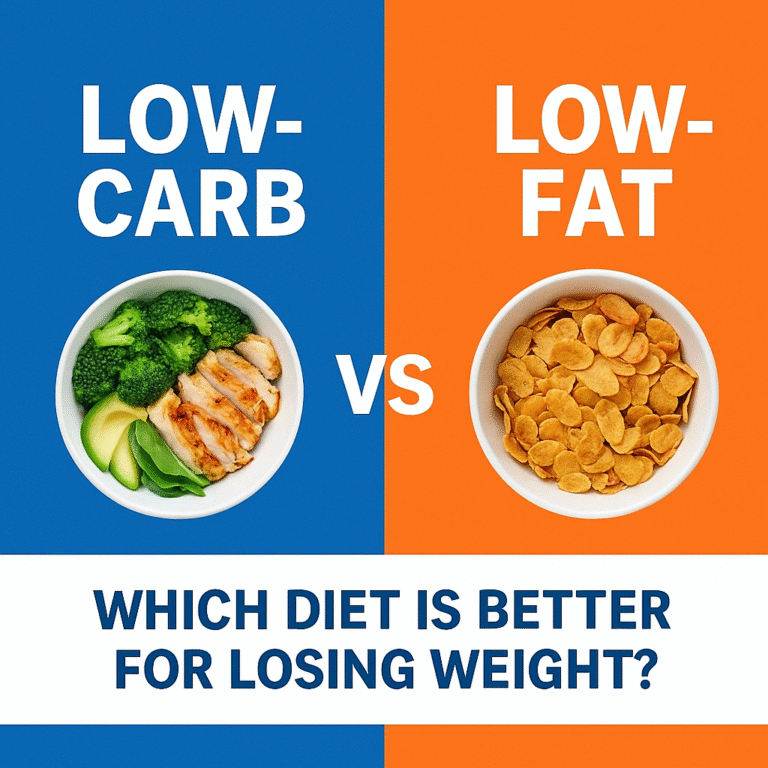Trying to lose weight but the scale won’t budge? You’re not alone. Millions of people feel stuck, even when they think they’re doing everything right. The truth is: weight loss isn’t just about eating less — it’s about eating smart, staying consistent, and avoiding sneaky pitfalls that stall your progress.
Here are 10 of the most common weight loss mistakes — and how to fix them.
1. You’re Not in a Calorie Deficit
Why a Calorie Deficit Is Essential
Weight loss boils down to one fundamental principle: calories in vs. calories out. If you’re not in a calorie deficit — meaning you’re consuming fewer calories than you burn — you won’t lose weight. It doesn’t matter if you’re eating clean or cutting sugar.
The “Healthy Food” Trap
Many people overeat healthy foods like nuts, avocados, or protein bars. They’re nutritious, but high in calories. Eating too much of them can still push you into a surplus.
Fix: Use a calorie tracking app like MyFitnessPal or Cronometer to stay aware of your intake.
2. You’re Not Tracking What You Eat Accurately
Small Snacks Add Up
That bite of chocolate here, a spoon of peanut butter there — they seem harmless but can add hundreds of untracked calories daily.
Liquid Calories Often Go Unnoticed
Sugary coffee drinks, fruit juices, and even smoothies can sabotage your calorie deficit without you realizing.
Fix: Track every single thing you eat and drink for a week. You’ll be surprised where the extra calories come from.
3. You’re Eating Too Little
How Extreme Restriction Backfires
Going too low in calories can cause your body to adapt by slowing metabolism and holding onto fat — a survival mechanism.
The Truth About Starvation Mode
While “starvation mode” is often misunderstood, it’s true that severe restriction can lead to muscle loss and fatigue, making your body burn fewer calories at rest.
Fix: Eat at a moderate deficit — usually 500–700 calories below maintenance — to keep your metabolism humming.
4. Your Macros Are Imbalanced
Why Protein Is Essential
Protein helps preserve muscle mass while you lose fat. It also keeps you fuller longer, which reduces cravings and snacking.
The Role of Carbs and Fats
While low-carb diets work for some, others perform better on balanced macros. Fats support hormones, and carbs provide energy.
Fix: Aim for a balanced macro ratio — around 40% carbs, 30% protein, and 30% fats — and adjust based on how your body responds.
5. You Rely on Exercise Alone
You Can’t Out-Train a Bad Diet
One hour at the gym can’t undo poor eating habits. A single cheeseburger can replace the calories burned in a 5-mile run.
Overestimating Calories Burned
Many people assume their workouts burn more calories than they actually do — especially if relying on fitness trackers, which can be off by 20–40%.
Fix: Focus on both diet and exercise. Use workouts to build strength and metabolism, but control your weight loss in the kitchen.
6. You’re Not Sleeping Enough
Sleep Impacts Fat Loss
Poor sleep increases hunger hormones (ghrelin) and decreases fullness hormones (leptin), making you more likely to overeat.
Metabolism and Recovery
Sleep is when your body recovers and repairs. Inadequate sleep slows metabolism and makes your body less efficient at burning fat.
Fix: Aim for 7–9 hours of quality sleep. Keep a consistent schedule and avoid screens an hour before bed.
7. You’re Stressed All the Time
Cortisol and Belly Fat
Chronic stress elevates cortisol, which has been linked to increased belly fat and cravings for high-carb, high-fat foods.
Emotional Eating Patterns
Many people use food as comfort when stressed, leading to binge episodes that cancel out weekly progress.
Fix: Incorporate stress-reducing habits like walking, journaling, deep breathing, or even 10-minute breaks in nature.
8. You Skip Meals or Follow Fad Diets
Meal Skipping Can Backfire
Skipping meals often leads to overeating later. Skipping breakfast might sound like a shortcut, but it can lead to bingeing by evening.
The Danger of Trendy Diets
Keto, juice cleanses, or extreme detox diets may show quick results but are hard to maintain and can cause nutrient deficiencies.
Fix: Focus on a sustainable approach with 3–4 balanced meals a day. Choose whole foods and allow flexibility for long-term success.
9. You’re Not Consistent Enough
Weekend Overeating Undermines Progress
Many people eat well during the week but undo progress with “cheat weekends.” One weekend of excess can erase 5 days of discipline.
The Power of Small Habits
Weight loss is about consistency, not perfection. Progress comes from daily habits, not occasional intensity.
Fix: Stay 80–90% consistent. Allow treats but in moderation, and track your weekly average intake.
10. You’re Not Drinking Enough Water
Dehydration Mimics Hunger
Sometimes, what you think is hunger is actually thirst. Staying hydrated can reduce unnecessary snacking.
Water Supports Metabolism
Water plays a crucial role in digestion, metabolism, and fat oxidation.
Fix: Aim for 2–3 liters of water daily. Drink a glass before meals to help with portion control.
Final Thoughts: Turn Frustration into Progress
If your diet isn’t working, don’t give up. It’s not a sign of failure — just a signal to adjust your approach. By identifying these common mistakes and fixing them one by one, you’ll be back on track toward your weight loss goals.
Remember: Sustainable weight loss is a marathon, not a sprint. Prioritize consistency, balance, and smart habits — and the results will follow.




